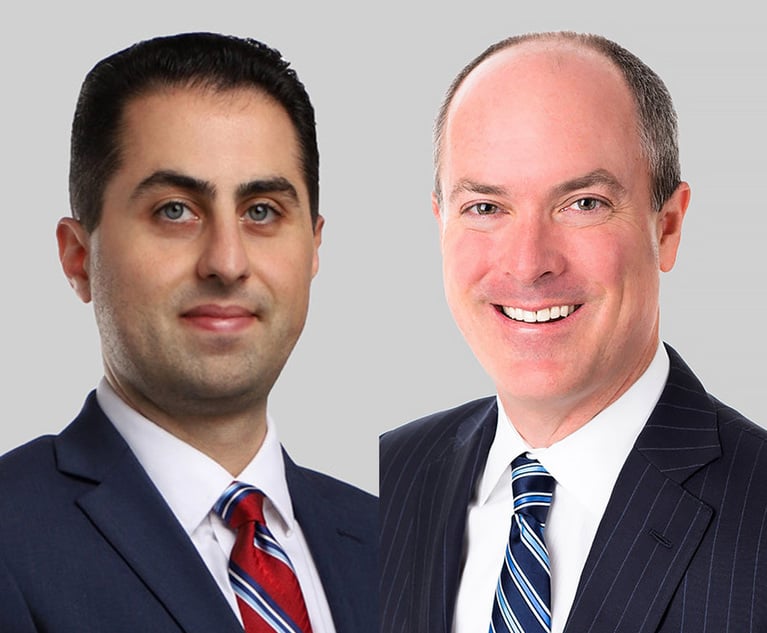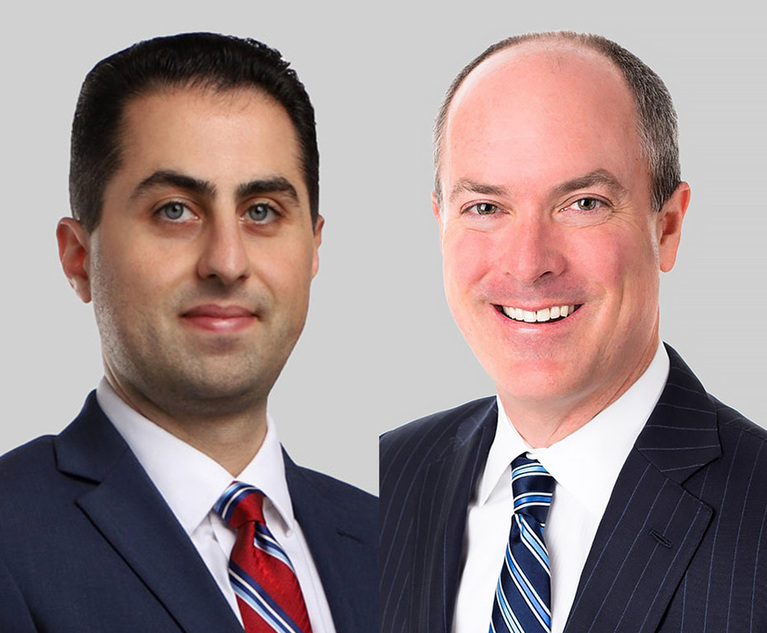Matthew D Lee

October 30, 2024 | The Legal Intelligencer
Unchargeable Conduct: The Next Frontier for Sentencing ReformUnder the previous rule, a defendant who was convicted of one charge but acquitted of another could still face punishment for the acquitted conduct, so long as the government could convince the judge at sentencing that it was more likely than not that the defendant did in fact commit the crime.
By Saverio S. Romeo and Matthew D. Lee
3 minute read

April 05, 2023 | The Legal Intelligencer
As the Clock Ticks on Acquitted Conduct Sentencing, Is Relevant Conduct Sentencing Next?How can a judge punish a defendant for a crime as if the jury never acquitted them? It is a question that has weighed on the minds of defense lawyers and commentators for years, and it is one that the U.S. Sentencing Commission is seeking to put to rest once and for all.
By Matthew D. Lee and Saverio S. Romeo
6 minute read

August 18, 2015 | The Legal Intelligencer
'Required Records' Decision Erodes Taxpayers' Fifth Amendment RightsFew rights are more sacrosanct than the constitutional privilege against self-incrimination. This right extends beyond making statements to police or testifying in court, but also to the act of producing records.
By Matthew D. Lee and Jed Silversmith
7 minute read

August 18, 2015 | The Legal Intelligencer
'Required Records' Decision Erodes Taxpayers' Fifth Amendment RightsFew rights are more sacrosanct than the constitutional privilege against self-incrimination. This right extends beyond making statements to police or testifying in court, but also to the act of producing records.
By Matthew D. Lee and Jed Silversmith
7 minute read

July 27, 2015 | The Legal Intelligencer
Protecting Homeowners in Civil Forfeiture CasesAs part of its efforts to combat illegal drug trafficking in the city of Philadelphia, the Philadelphia District Attorney's Office regularly employs Pennsylvania's Controlled Substances Forfeiture Act to seek forfeiture of real and personal property connected with narcotics activity. While the goal of cracking down on drug crimes is a laudable one, an unfortunate consequence is that innocent homeowners are often ensnared in the forfeiture net, and such individuals can be deprived of ownership of their primary residence upon a showing by prosecutors, using only a preponderance of the evidence standard, that the property was used to facilitate illegal activity and without convicting the homeowner of any wrongdoing.
By Matthew D. Lee
6 minute read

July 25, 2015 | The Legal Intelligencer
Protecting Homeowners in Civil Forfeiture CasesAs part of its efforts to combat illegal drug trafficking in the city of Philadelphia, the Philadelphia District Attorney's Office regularly employs Pennsylvania's Controlled Substances Forfeiture Act to seek forfeiture of real and personal property connected with narcotics activity. While the goal of cracking down on drug crimes is a laudable one, an unfortunate consequence is that innocent homeowners are often ensnared in the forfeiture net, and such individuals can be deprived of ownership of their primary residence upon a showing by prosecutors, using only a preponderance of the evidence standard, that the property was used to facilitate illegal activity and without convicting the homeowner of any wrongdoing.
By Matthew D. Lee
6 minute read
August 05, 2008 | The Legal Intelligencer
9th Circuit Ruling Raises Stakes for Those Facing Parallel InvestigationsA recent decision by the 9th U.S. Circuit Court of Appeals, United States v. Stringer, gives government lawyers, and prosecutors in particular, significant latitude to conceal the existence of a criminal investigation from individuals and companies who are already embroiled in civil proceedings with the government. In the wake of Stringer, there exists a fine distinction between what government lawyers are allowed to do and say in conducting parallel civil and criminal government investigations, and what may constitute bad faith and deceit that infringes on a criminal targetís constitutional rights.
By Matthew D. Lee And Tyler Brody
10 minute read
August 05, 2008 | The Legal Intelligencer
9th Circuit Ruling Raises Stakes for Those Facing Parallel InvestigationsA recent decision by the 9th U.S. Circuit Court of Appeals, United States v. Stringer, gives government lawyers, and prosecutors in particular, significant latitude to conceal the existence of a criminal investigation from individuals and companies who are already embroiled in civil proceedings with the government. In the wake of Stringer, there exists a fine distinction between what government lawyers are allowed to do and say in conducting parallel civil and criminal government investigations, and what may constitute bad faith and deceit that infringes on a criminal targetís constitutional rights.
By Matthew D. Lee And Tyler Brody
10 minute read
Trending Stories
- 1Judge Pauses Deadline for Federal Workers to Accept Trump Resignation Offer
- 2DeepSeek Isn’t Yet Impacting Legal Tech Development. But That Could Soon Change.
- 3'Landmark' New York Commission Set to Study Overburdened, Under-Resourced Family Courts
- 4Wave of Commercial Real Estate Refinance Could Drown Property Owners
- 5Redeveloping Real Estate After Natural Disasters: Challenges, Strategies and Opportunities



